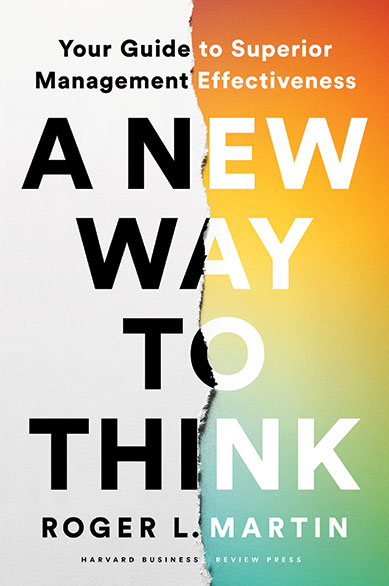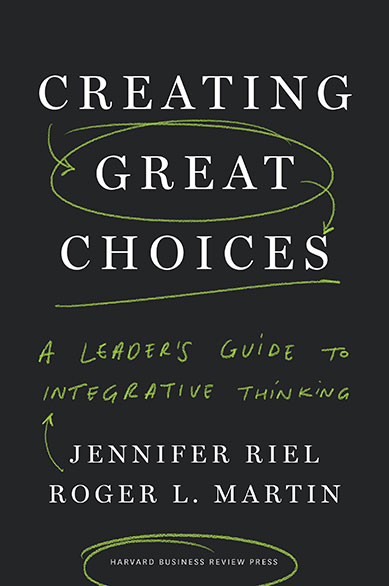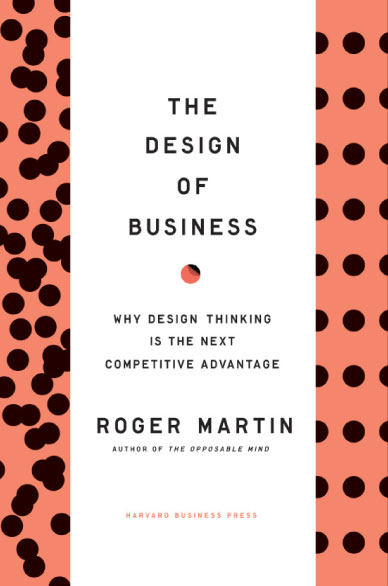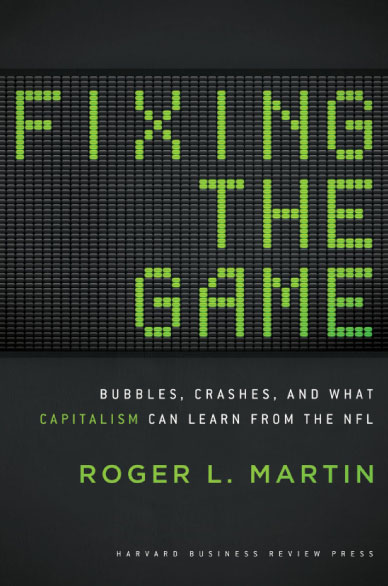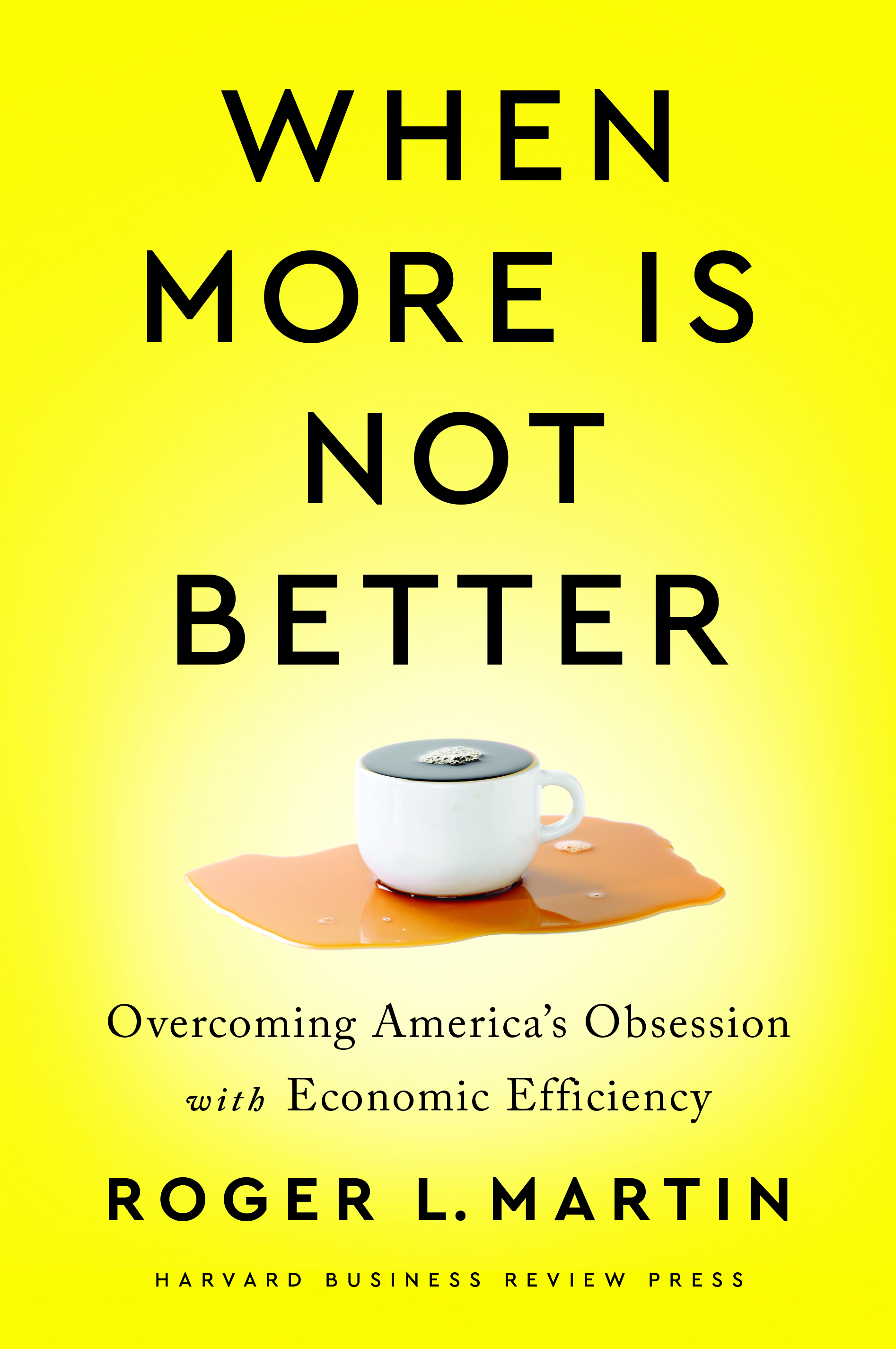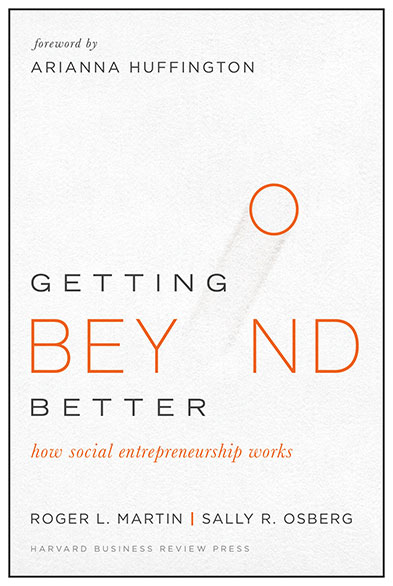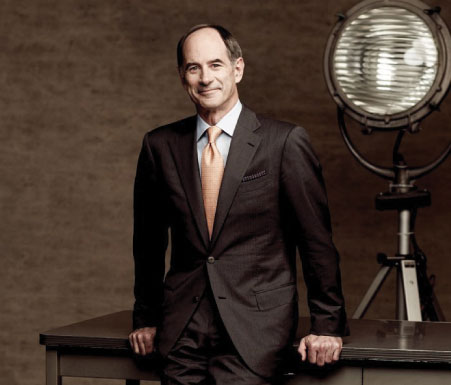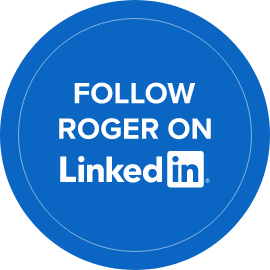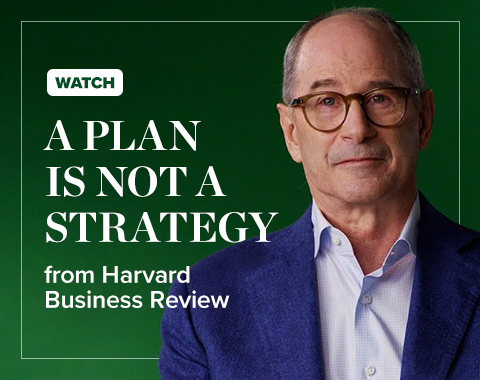-
Harvard Business Review
Management Is Much More Than a Science
with Tony Golsby-Smith
September-October 2017
-
Harvard Business Review
Design for Action
with Tim Brown
September 2015
-
Harvard Business Review
The Innovation Catalysts
June 2011
-
HBR.org
Use Design Thinking to Build Commitment to a New Idea
January 3, 2017
-
Harvard Business Review
Customer Loyalty is Overrated
with A.G. Lafley
January-February 2017
-
HBR.org
Two Words That Kill Innovation
December 9, 2014
-
HBR.org
The Unexpected Benefits of Rapid Prototyping
Roger Martin
February 11, 2014
-
HBR.org
Trending Again: Emoting at the World Economic Forum
January 28, 2013
-
Globe and Mail
Steve Jobs’ Biggest Contribution? He Made us Bolder
October 7, 2011
-
HBR.org
You Can't Analyze Your Way to Growth
September 12, 2011
-
HBR.org
Can Apple Survive Without Steve Jobs?
August 29, 2011
-
HBR.org
Cool Alone Won’t Save Your Company
July 20, 2011
-
FutureReadySLA.org
The Logic of What Might Be
June 12, 2011
-
Harvard Business Review
Don’t Get Blinded by the Numbers
March 2011
-
Design Observer
Design Thinking Comes to the US Army
May 3, 2010
-
Rotman Magazine
Beyond the Numbers: Building Your Qualitative Intelligence
Spring 2010
-
Interactions.org
Designing Interactions at Work: Applying Design to Discussions, Meetings and Relationships
with Jennifer Riel
March/April 2010
-
HBR.org
The Secret to Meaningful Customer Relationships
March 24, 2010
-
Strategy & Leadership
Achieving insights via the ‘‘knowledge funnel’’
March 9, 2010
Volume 38, Number 2, 2010, pp. 37-41
-
Bloomberg Businessweek
The 'Inglourious' Decline of Miramax Films
with Jennifer Riel
March 4, 2010
-
Strategy Magazine
Issue 23: Thinking by Design
with Jennifer Riel
March 2010
-
The Washington Post
On Leadership: Logical Leaps into the Future
February 1, 2010
-
HBR.org
Management by Imagination
January 19, 2010
-
Bloomberg Businessweek
Innovation’s Accidental Enemies
with Jennifer Riel
January 14, 2010
-
BBetween Magazine
Designing Relationships: Applying Design to Interactions at Work
with Jennifer Riel
2010
Issue 3
-
Rotman Magazine
The Science and Art of Business
Winter 2009
-
Harvard Business Review
Two Leading Researchers Discuss the Value of Oddball Data
November, 2009
-
Design Observer
What is Design Thinking Anyway?
October 14, 2009
-
BusinessWeek
The Design of Business
October 14, 2009
-
Rotman Magazine
Choices, Conflict and the Creative Spark
Winter 2008
-
BusinessWeek
Scientific Management is Past its Peak
May 21, 2007
-
BusinessWeek
The Positive Spiral: Six Keys to Success
February 28, 2007
-
Journal of Business Strategy
Design and Business: Why Can't We Be Friends
2007
Vol. 28, No.4
-
BusinessWeek
Is Reality the Enemy of Innovation
December 4, 2006
-
FastCompany
Tough Love: Business Wants to Love Design, but it's an Awkward Romance
October 2006
-
BusinessWeek
At the Crossroads of Design and Business
July 31, 2006
-
Rotman Magazine
Designing in Hostile Territory
Spring/Summer 2006
-
Business Week
The Bottom Line, Davos-Style
February 22, 2006
-
BusinessWeek
What Innovation Advantage
January 15, 2006
-
BusinessWeek
India and China: Not Just Cheap
December 12, 2005
-
Rotman Magazine
Validity vs. Reliability: Implications for Management
Winter 2005
-
BusinessWeek
Designing in Hostile Territory
November 17, 2005
-
BusinessWeek
Reliability vs. Validity
September 29, 2005
-
Rotman Magazine
Embedding Design Into Business
Fall 2005
-
BusinessWeek
Why Decisions Need Design, Part 2
August 31, 2005
-
Business Week
Why Decisions Need Design, Part 1
August 29, 2005
-
BusinessWeek
Creativity that Goes Deep
August 2, 2005
-
Harvard Business Review
Breakthrough Ideas for 2005: Validity vs. Reliability
February 2005
-
Rotman Magazine
The Design of Business
Winter 2004
-
HBR
Ideacast (5:45 - 13:50)
Sarah Green Carmichael
January-February 2017 Issue
-
Inside HR
Design Thinking 101 for HR: How to help your CEO drive strategy
November 24, 2015
-
Innovation Excellence
Balancing Intuition with Analysis
June 15, 2012
-
The Business Times
Design is Linked to Growth
July 26, 2011
-
The Straights Times
Design Thinking Gives Firms an Edge
July 20, 2011
-
Forbes.com
Redesigned Thinking for Diverse Brains!
Ellen Weber
February 10, 2011
-
Ideaconnection.com
Diving into Mysteries
Vern Burkhardt
February 6, 2011
-
Be You Blog
Be Bold
Monika Hardy
January 15, 2011
-
Steelcase Threesixty Magazine
On Innovation and Why Companies Struggle with It
June 2010
-
DNA Money (Mumbai, India)
Why Companies Get Trapped Into Doing What They Are Good At,
Vivek Kaul
February 8, 2010
-
Open Forum Blog
The Design of Business, an Interview with Roger Martin
Matthew May
November 4, 2009
-
Gelatobaby Interview
2009 AIGA Make/Think Conference
October 9, 2009
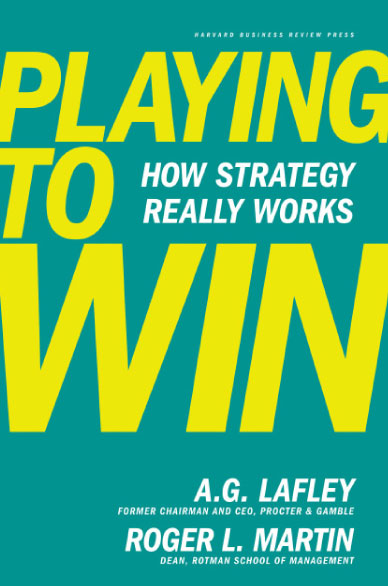 Buy the book
Book roger to speak
Buy the book
Book roger to speak
